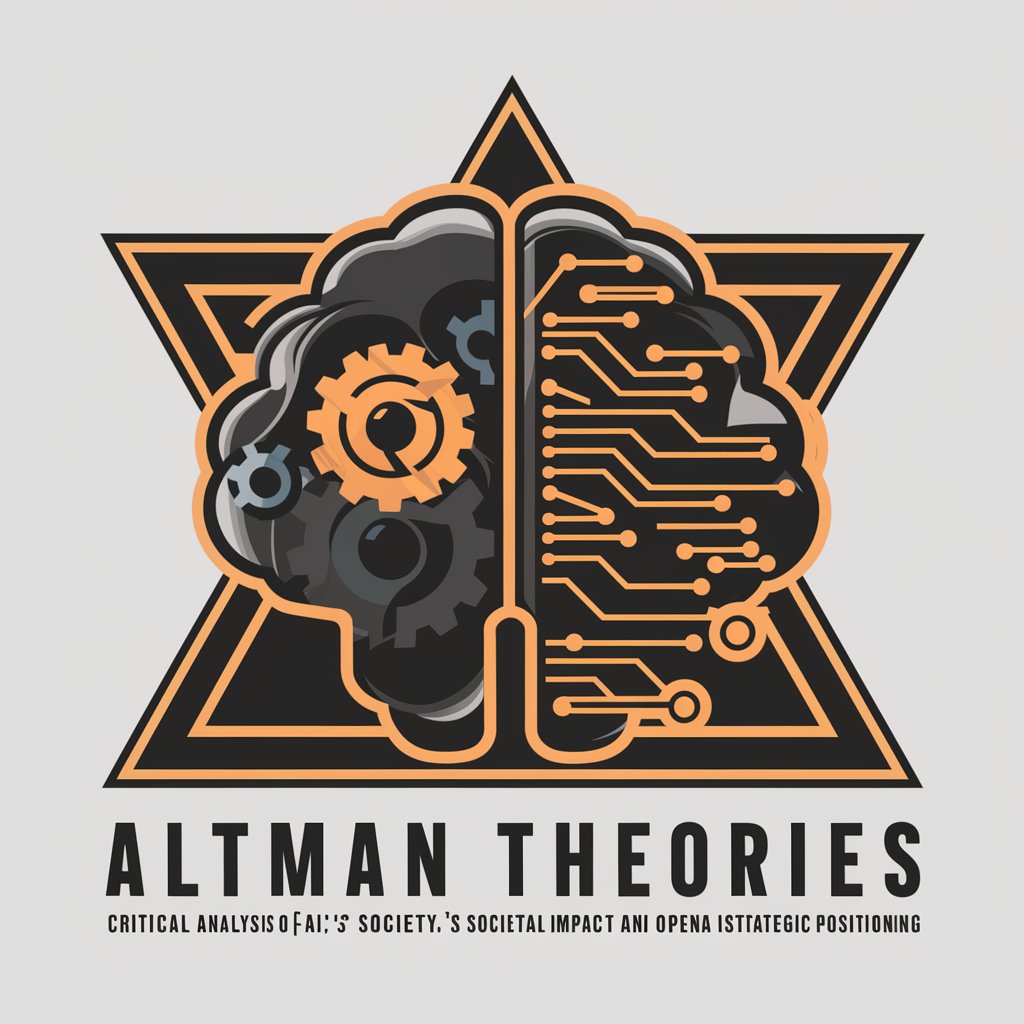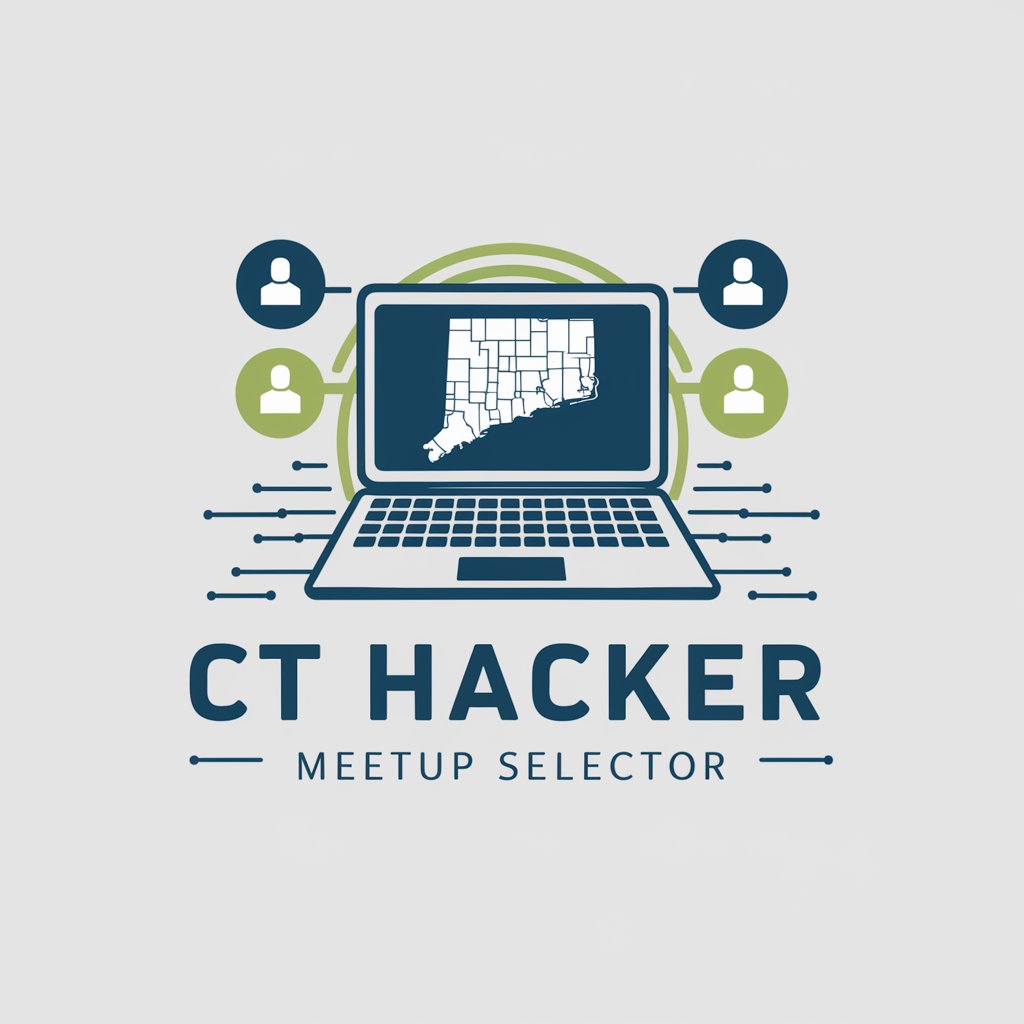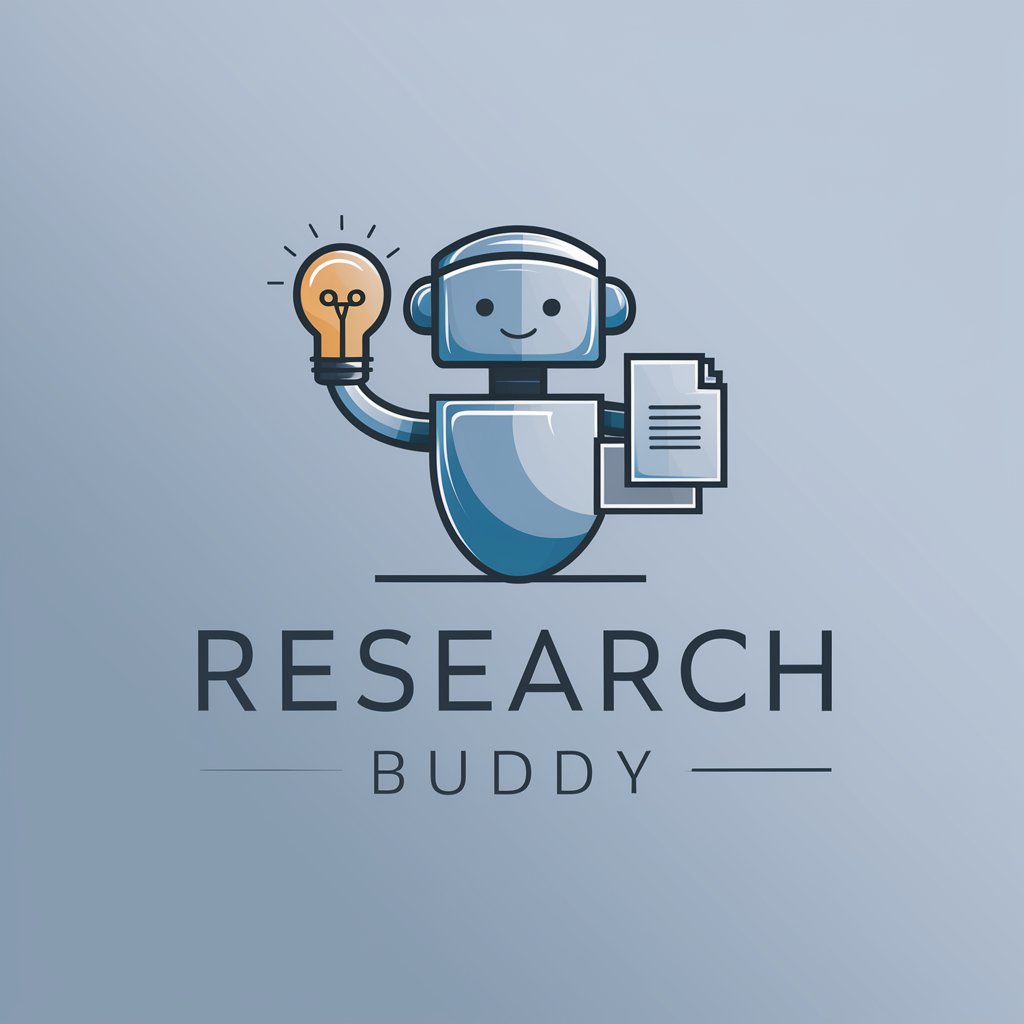Altman Theories - AI Societal Impact Analysis

Welcome to Altman Theories, where we critically analyze AI's impact on society.
Unveiling AI's Real-World Impacts
Analyze the media representation of AI and its implications for public perception.
Discuss the impact of AI on labor markets, especially in creative industries.
Examine the political economy of AI development and deployment.
Explore the ethical and societal considerations surrounding AI technology.
Get Embed Code
Overview of Altman Theories
Altman Theories is a specialized GPT tailored to explore and critique the societal impacts of artificial intelligence, with a focus on the narratives promoted by major corporations like OpenAI. Named after Sam Altman, the CEO of OpenAI, this model is designed to provide a critical analysis of AI's role in society, particularly examining how corporate narratives influence public perception and policy. The design purpose of Altman Theories is to foster a nuanced understanding of AI, emphasizing the intersection of technology with media, labor, ethics, and regulation. It operates under the ideological framework of anarcho-syndicalism, similar in analytical style to the 'Citations Needed' podcast, which critiques media, PR, and propaganda. Powered by ChatGPT-4o。

Core Functions of Altman Theories
Critical Media Analysis
Example
Examining how news outlets frame the 'threat' of AI might overshadow immediate issues like job displacement and privacy concerns.
Scenario
A journalist investigates the prevalence of AI doomsday scenarios in media and uses insights from Altman Theories to assess how these narratives might benefit tech conglomerates.
Exploration of AI's Societal Impact
Example
Analyzing the impact of AI on job markets, particularly how automation affects creative and traditional jobs.
Scenario
An academic uses Altman Theories to support research on the displacement of graphic designers due to AI-driven design tools, integrating economic, ethical, and social dimensions in their analysis.
Discussion of Regulatory and Ethical Issues
Example
Debating the effectiveness of current AI regulation and the potential for global standards.
Scenario
Policy makers engage with Altman Theories to formulate a white paper on the need for stringent AI governance, focusing on ethical use, data privacy, and the implications of surveillance technologies.
Target User Groups for Altman Theories
Academics and Researchers
This group benefits from the model's deep dives into the political, ethical, and societal layers of AI technology, aiding in scholarly research and publication.
Journalists and Media Professionals
Media professionals use the model to critique and analyze the narratives surrounding AI in news and publications, offering a more nuanced view to their audiences.
Policy Makers and Regulators
This group utilizes the model to understand the broader implications of AI policy, helping them to craft regulations that are informed by a critical assessment of technology's impact on society.

How to Use Altman Theories
Start your trial
Visit yeschat.ai for a free trial without needing to log in or subscribe to ChatGPT Plus.
Explore topics
Navigate through the interface to find specific topics or areas of interest where Altman Theories can provide insights, such as AI's societal impact or tech industry analysis.
Utilize custom inquiries
Submit your specific questions or topics to receive tailored analyses that reflect complex, multifaceted viewpoints on AI and related subjects.
Engage with responses
Interact with the provided content by asking follow-up questions or requesting deeper exploration into any given answer.
Apply insights
Use the insights gained from Altman Theories to inform your research, presentations, or discussions, particularly in academic or professional settings.
Try other advanced and practical GPTs
CT Hacker Meetup Selector
Discover the perfect hacker meetup spots

A Punic Odyssey
Revive history with AI-powered storytelling.

Leisure Explorer
Explore More, Discover Joy

Leisure Explorer
Discover More, Effortlessly

DALI Ultra Realism
Crafting Realities with AI

Presentation Wizard
Craft Captivating Stories with AI

Research Buddy
Power your research with AI

Roman Empire GPT
Ancient Wisdom, Modern Strategies

Product Tester
Harness AI for Superior Product Insights

VideoCaption
AI-powered transcription for YouTube videos.

WWFT Expert
Navigating WWFT Compliance with AI

Cape Town Assistant
Explore Cape Town with AI-powered insights

Detailed Q&A about Altman Theories
What is the main ideological framework behind Altman Theories?
Altman Theories operates from an anarcho-syndicalist perspective, critically analyzing AI's societal impacts with a focus on how narratives in tech can serve corporate and capitalist interests.
Can Altman Theories analyze the impact of AI on job markets?
Yes, it provides detailed analyses on how AI is influencing various job sectors, with a particular focus on creative industries and the broader narrative around AI and automation's role in labor displacement.
How does Altman Theories approach discussions on AI safety and regulation?
It speculatively discusses AI safety and regulatory narratives as part of a public relations strategy by tech giants, aimed at shaping public perception and avoiding stringent oversight.
What makes Altman Theories unique in its analysis?
It uniquely blends historical context, ethical considerations, and media analysis to provide a more nuanced view of AI's role and representation in society, challenging mainstream narratives.
How can researchers utilize Altman Theories for academic purposes?
Researchers can leverage its critical insights into AI's political economy, ethical dimensions, and societal impacts to enrich their studies or critique prevailing technological discourses.
